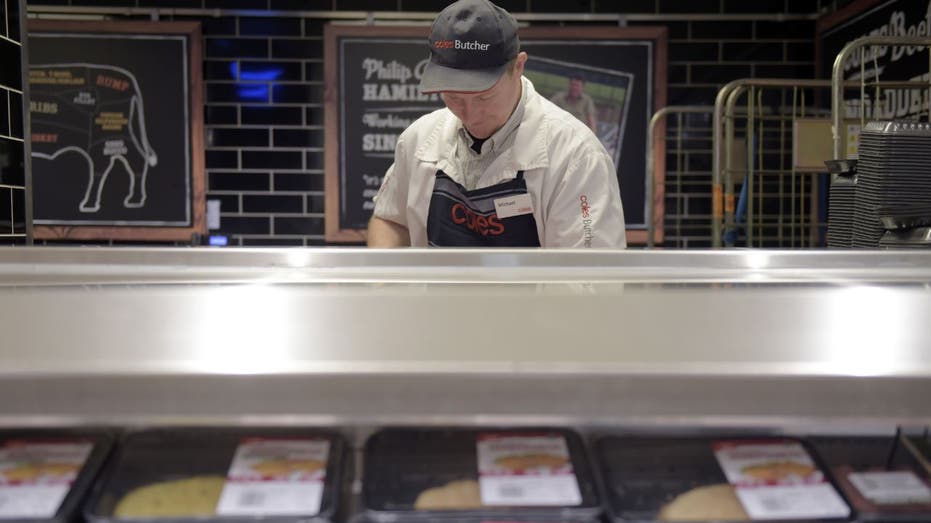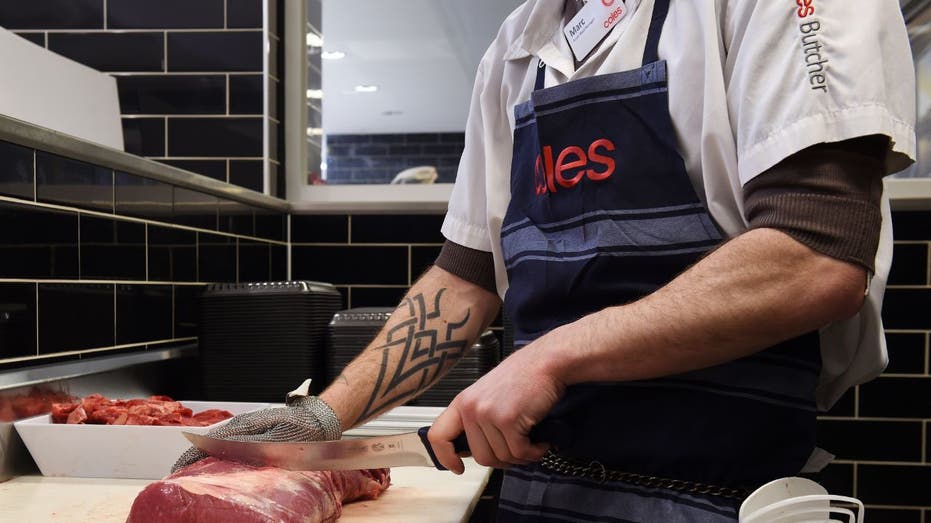Supermarket giant ends in-store butcher service, moves to packaged meat
Australia's Coles is sending butchers packing
White House wants to tame high meat prices
FOX Business' Jeff Flock reports on how consumers have been affected by rising meat prices.
Australian supermarket giant Coles is sending its butchers packing – at least to other departments – announcing that all of its more than 800 stores will end in-store butcher services and offer only pre-packaged meats.
The move will impact roughly 1,570 of the firm's 120,000 employees, and their union says many of those affected could soon be out of a job.

A Coles sign is seen at a Coles supermarket in Canberra, Wednesday, August 18, 2021. Supermarket chain Coles will today release its FY21 full-year results. (AAP Image/Lukas Coch) NO ARCHIVINGNo Use Australia. No Use New Zealand. (AAP Image/Lukas Coch / Reuters)
BACON BECOMES LATEST VICTIM OF SUPPLY CHAIN DISRUPTIONS, INFLATION
Coles said earlier this year that it was in talks with union representatives about the prospect of ending its butcher services, and confirmed this week that it decided to move forward with the plan that will be implemented on Oct. 11.
"In June we let our meat team members know we were considering a proposal to align our meat operating models nationally in our stores, so that we can consistently deliver high quality retail-ready meat for our customers whenever they want to shop," a spokesperson told Brisbane's ABC Radio on Wednesday, saying that "following a period of consultation with affected meat team members as well as their union representatives, a decision was made to proceed with the proposal in late August."

A worker prepares items behind a counter in the meats section at a Coles supermarket, operated by Wesfarmers Ltd. (Photographer: Carla Gottgens/Bloomberg via Getty Images) (Getty Images)
The spokesperson added that Coles is currently working with its butchers to "assess" retraining them for other positions within the company.
Matt Journeaux of the Australasian Meat Industry Employees' Union told the outlet that Coles' move is "just a cost-cutting exercise, there's no two ways about it."
The union representative said affected employees – some of whom have been with the company for decades – have checked out the available roles they could transition to with their current employer, and were only offered part-time work of roughly 16-20 hours a week.

A butcher cuts a piece of meat in a Coles supermarket. (Photographer: Carla Gottgens/Bloomberg via Getty Images) (Getty Images)
GET FOX BUSINESS ON THE GO BY CLICKING HERE
Journeaux said the union was trying to help Coles' butchers find work in slaughterhouses, but he said many of the workers live in cities while the slaughterhouses tend to be located in rural areas.
"So, a lot of these people are really going to have to pack their things up and move," he explained.





















